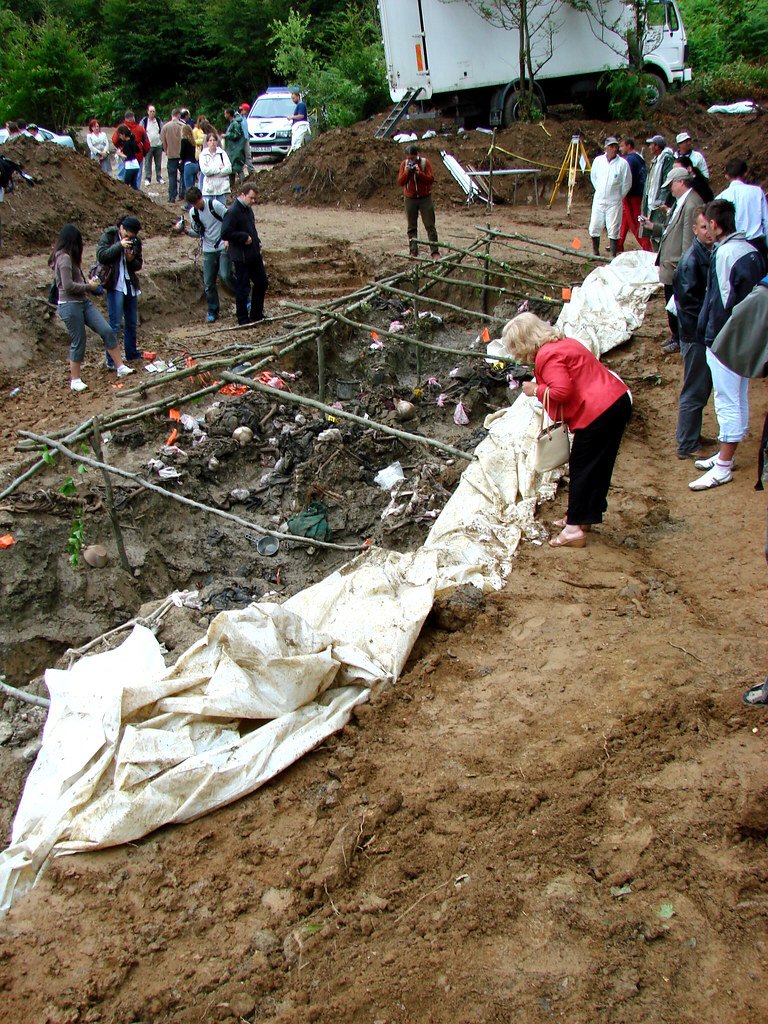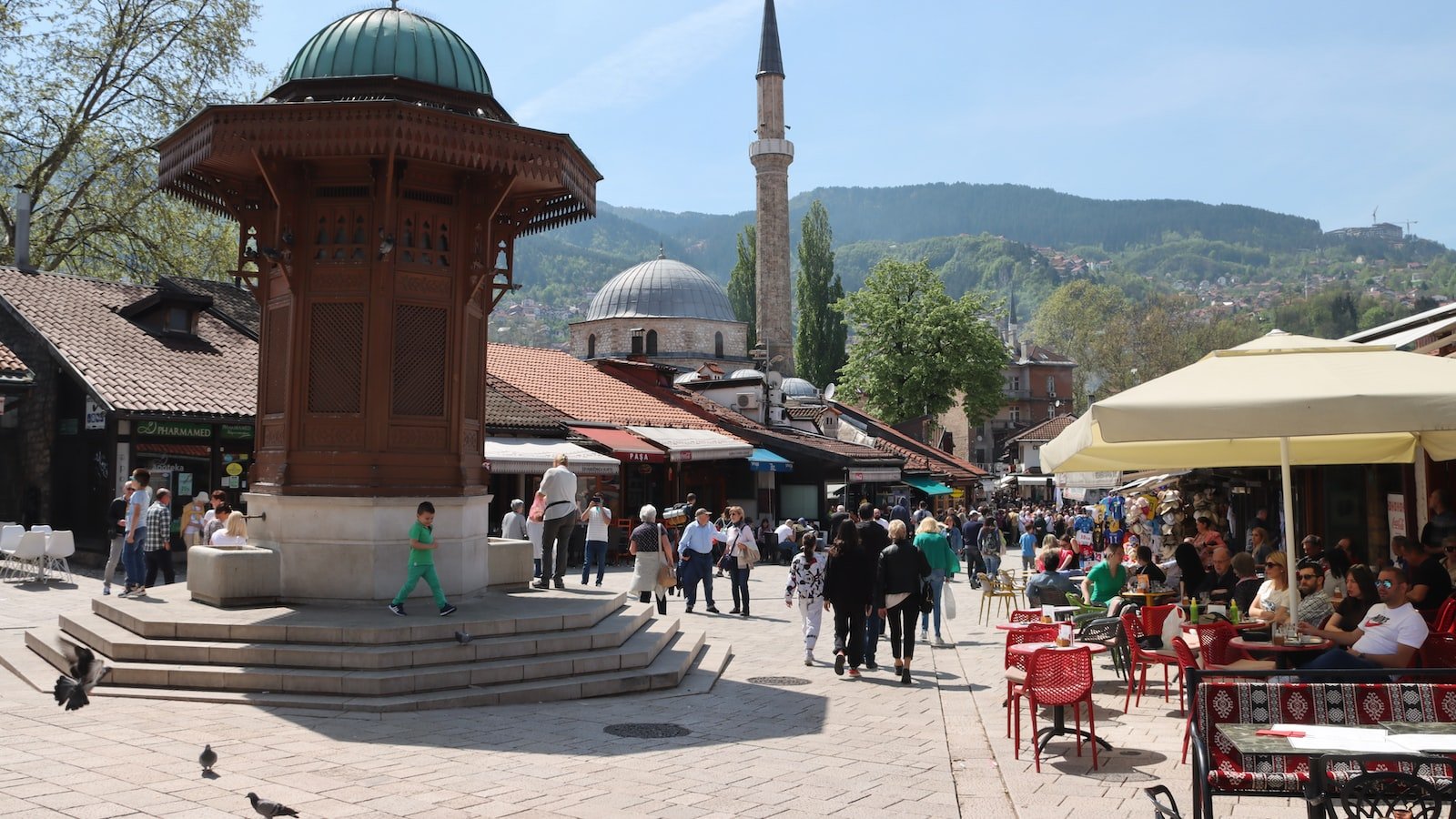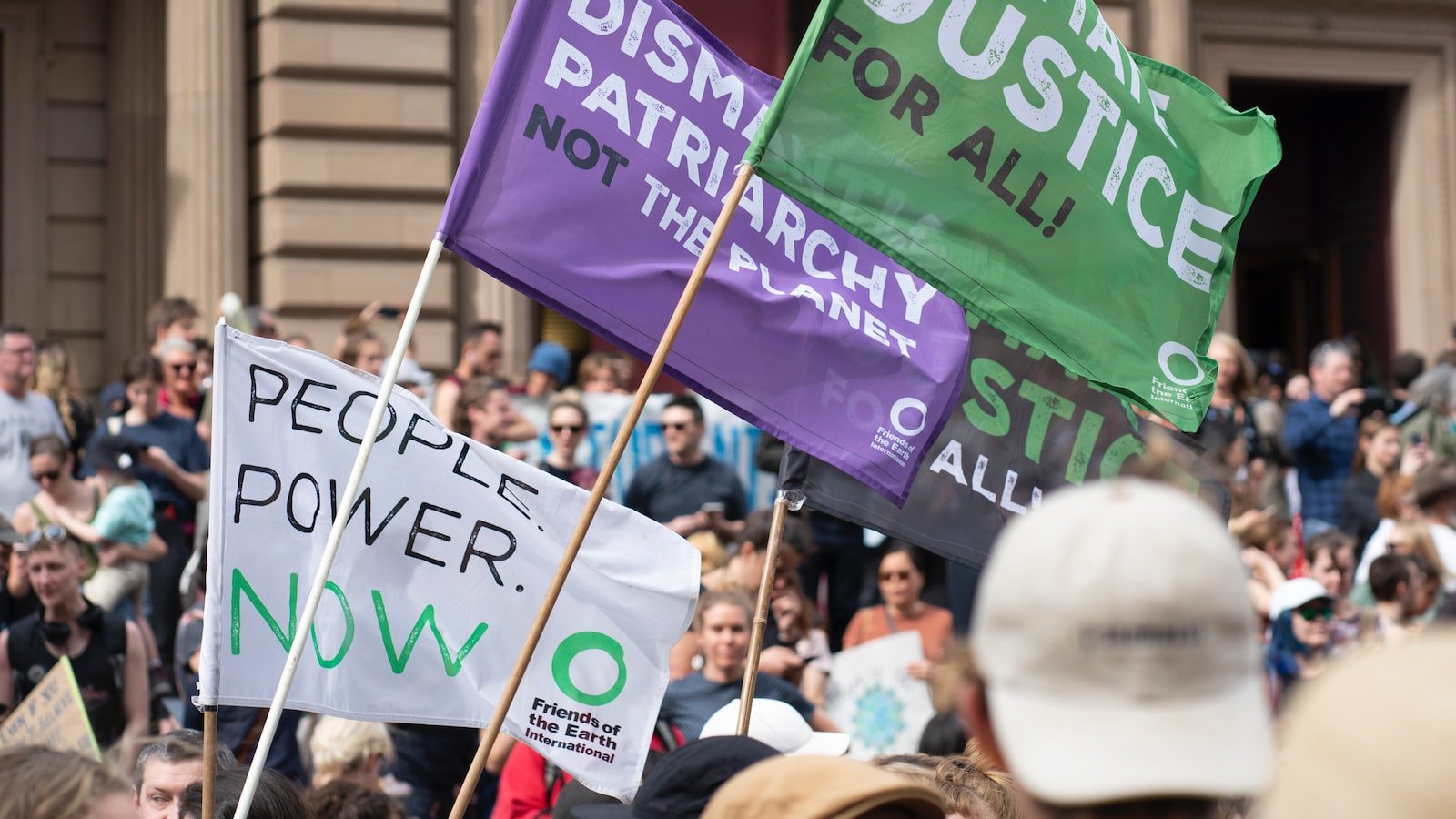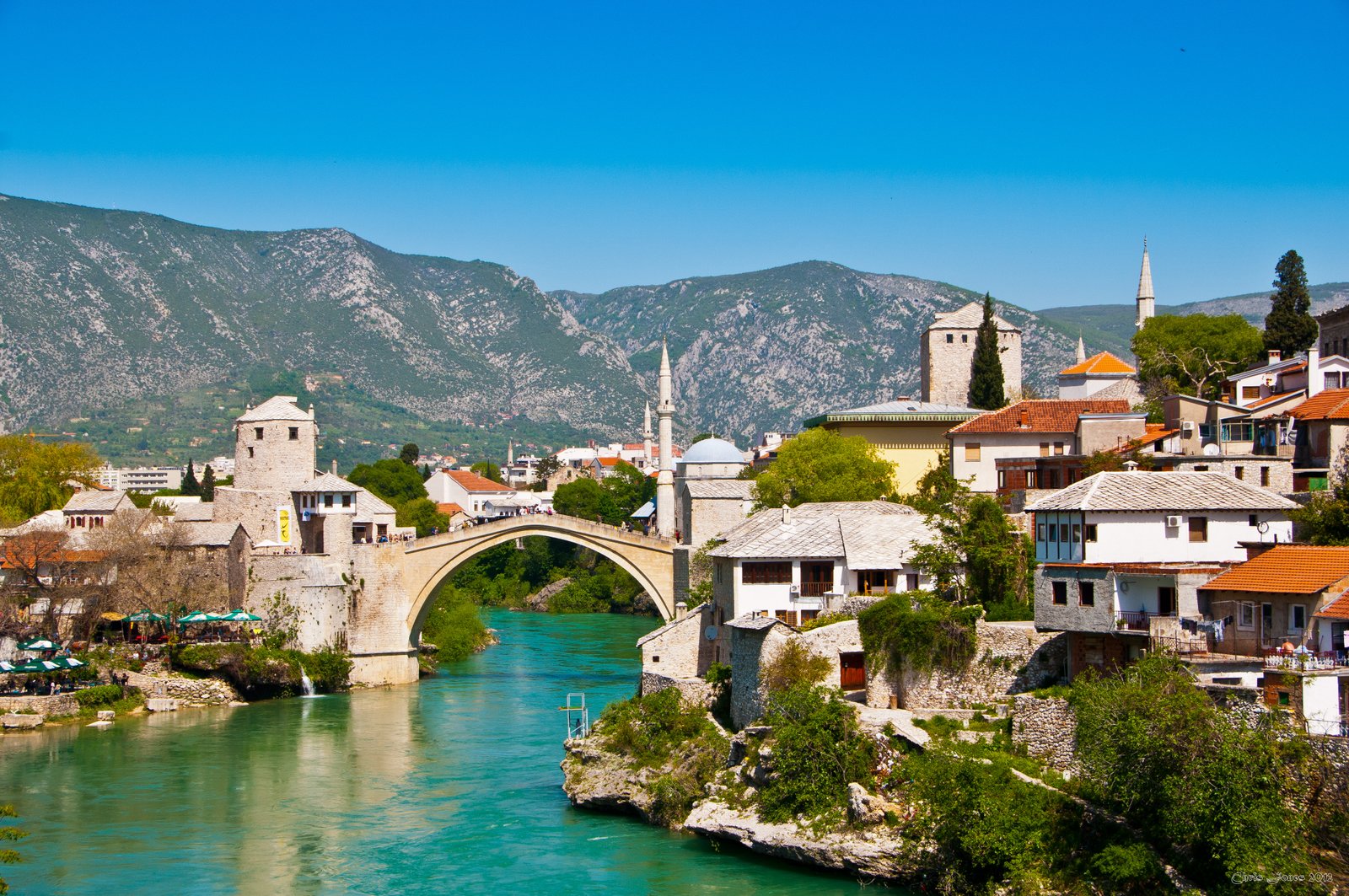Revisiting the Bosnian Serb Genocide: Reflecting on 25 Years of Tragedy
Twenty-five years have passed since the Bosnian Serb Genocide forever scarred the Balkans and horrified the world. As we mark this solemn anniversary, it is imperative to revisit this chapter in history, illuminating the dark corners that remain shrouded in pain and suffering. The atrocities committed during the Bosnian War between 1992 and 1995 continue to haunt collective memory, reminding us of the depths humanity can sink to when ethnic and religious divisions are exploited. Engulfed in a journalistic exploration, we aim to reflect on the significance of these tragic events, assessing the progress made toward justice and reconciliation, and seeking lessons to prevent such horrors from ever repeating. Join us on this journey as we delve into the heart-wrenching narrative of the Bosnian Serb Genocide, painting an objective portrait of the past while envisioning a future shaped by empathy, understanding, and resilience.
Table of Contents
- The Srebrenica Massacre: Analyzing the Worst Act of Genocide on European Soil since World War II
- Understanding the Historical Context: Unraveling the Deep-seated Ethnic Tensions in Bosnia
- Reflecting on the International Response: Evaluating the Failures and Lessons Learned
- Moving Forward: Recommendations for Reconciliation and Justice in Bosnia
- Q&A
- Key Takeaways

The Srebrenica Massacre: Analyzing the Worst Act of Genocide on European Soil since World War II
Retrospective Historical Content
The Srebrenica Massacre, an event that will forever stain the pages of history, stands as a gruesome testament to the darkest depths of human cruelty. In July 1995, amidst the turbulent breakup of Yugoslavia, the Bosnian Serb Army mercilessly overrun the town of Srebrenica, a supposed UN safe area. What followed can only be described as a haunting and systematic campaign of mass murder and ethnic cleansing. Thousands of Bosniak men and boys, who sought shelter within the enclave’s supposed safe walls, were rounded up and led away to their brutal fate.
In an act of unparalleled barbarity, the Bosnian Serb soldiers separated the men from the women and children, forcibly removing any semblance of protection these innocent civilians had. Depriving them of their dignity, the Serb forces unleashed a wave of unspeakable violence. Bound by a twisted ideology of hatred, these soldiers executed, tortured, and committed unspeakable acts of violence against their victims. The echoes of gunfire reverberated through the hills of Srebrenica as families were torn apart, with broken bodies strewn across the once peaceful streets. The scale of this atrocity was unparalleled in post-World War II Europe, and it forever shattered the illusion of safety and protection the United Nations was supposed to provide.

Understanding the Historical Context: Unraveling the Deep-seated Ethnic Tensions in Bosnia
Unraveling the Deep-seated Ethnic Tensions in Bosnia
As we delve into the intricate tapestry of Bosnia’s troubled past, a vivid mosaic of ethnic strife and historical grievances comes to life. The scars carved by centuries of division and conquest lay the foundation for the deep-seated ethnic tensions that persist in the region to this day.
In 1914, the assassination of Archduke Franz Ferdinand by a Bosnian Serb nationalist ignited the fuse that would set ablaze the powder keg of the Balkans, plunging the world into the cauldron of the First World War. The subsequent disintegration of the Ottoman Empire further exacerbated the existing religious and ethnic fault lines. The Treaty of Versailles, which redrew the map of Europe, established the Kingdom of Serbs, Croats, and Slovenes, later renamed Yugoslavia.
Beneath the new Yugoslav identity, simmered a toxic stew of ethnic rivalries, political aspirations, and historic animosities. The power struggle between the central government and regional nationalist movements saw sporadic outbreaks of violence, most notably during World War II when Bosnia became a battleground. The resulting bloodshed, including massacres such as the infamous Srebrenica genocide, left an indelible stain on the collective memory of the Bosnian people.
In the aftermath of communism’s collapse, Yugoslavia crumbled, and the ethno-nationalist fervor erupted into a brutal civil war. The Bosnian War between 1992 and 1995 witnessed unspeakable horrors, as Bosnian Croats, Serbs, and Bosniaks committed atrocities against each other. The secessionist aspirations of Bosnian Serbs under the leadership of Radovan Karadžić and Slobodan Milošević pushed the country to the brink of annihilation. The air raids, the indiscriminate shelling of cities, and the systematic ethnic cleansing left scars that still haunt the nation.
The historical context sheds light on the complexities of the ethnic tensions in Bosnia. Deep-rooted divisions, fueled by historical grievances, are not easily erased. Only by understanding this history can we hope to navigate the path towards reconciliation and pave the way for a peaceful and united future.
+

Reflecting on the International Response: Evaluating the Failures and Lessons Learned
The storm of events that unfolded during the tumultuous years of the early 21st century left an indelible mark on the international community. As nations grappled with conflicts and crises, the world watched with bated breath, hoping for a united front to navigate the numerous challenges that lay ahead. However, upon retrospection, it becomes painfully evident that the international response to these crises was riddled with failures, both in terms of coordination and action.
One glaring example that stands out is the Syrian Civil War, which erupted in 2011, unraveling the very fabric of an ancient land. As the war escalated into a brutal humanitarian catastrophe, the international community displayed a stunning lack of solidarity. Diplomatic negotiations were fraught with empty promises, while key players clung to their own vested interests. The United Nations’ failure to establish a decisive and unified response was a stinging blow to global cooperation and exposed deep-seated divisions within the international power structure. This lack of cohesive action not only prolonged the suffering of millions but also created a vacuum that extremists swiftly filled, adding yet another layer of anguish to an already devastated nation. As we look back on this episode, it serves as a stark reminder of the urgent need for enhanced diplomatic efforts and a united front when addressing conflicts of such magnitude.
Another historical moment that demands scrutiny is the international response to the global financial crisis of 2008. With the collapse of major financial institutions shaking the foundations of the global economy, nations were left scrambling for solutions. Regrettably, the interconnectedness of the global financial system did not translate into coordinated and effective responses. Instead, a patchwork of haphazard measures was put forth, resulting in a lack of confidence and worsening economic conditions. The failure to address the root causes of the crisis, coupled with inadequate regulatory oversight, exacerbated the severity of the downturn. This catastrophe was a wake-up call to the international community, exposing the fragile nature of the global financial system and the dire need for comprehensive reform. As we reflect on this period, it is crucial to recognize the lessons learned and strive for better international cooperation to prevent future economic disasters.
In the annals of history, the failures of the international response to various crises serve as cautionary tales, reminding us of the need for introspection and improvement. Only through honest evaluation can we hope to learn from past mistakes and pave the way for a more resilient and united world in the face of future challenges.
Moving Forward: Recommendations for Reconciliation and Justice in Bosnia
Retrospective Historical Context
The dark shadow of the Bosnian War continues to haunt the nation, even decades after the conflict’s end. To fully comprehend the complexities of reconciliation and justice in Bosnia today, it is imperative to delve into the harrowing events that shook the Balkans in the 1990s.
The Bosnian War, fueled by a toxic mix of ethnic tensions and political strife, raged on between 1992 and 1995, leaving a trail of destruction and despair in its wake. This brutal conflict saw the forced displacement of over two million people, the massacre of thousands, and the systematic rape and torture of countless individuals. The Siege of Sarajevo stands as a chilling testament to the human cost of this war, with the city enduring an agonizing 1,425 days under relentless shelling and sniper fire. The Srebrenica genocide stands out as a dark stain on humanity’s conscience, where more than 8,000 Bosniak men and boys were massacred in a chilling display of ethnic cleansing.
- 1992-1995: Bosnian War ravages the nation, resulting in the death of over 100,000 people and countless human rights abuses.
- 1995: Srebrenica massacre shocks the world, revealing the depths of ethnic cleansing in Bosnia.
- 1996: Dayton Agreement ends the war and establishes the framework for building lasting peace.
The road to reconciliation and justice in Bosnia has been treacherous, with simmering tensions and fragile political alliances threatening to unravel the delicate peace. The International Criminal Tribunal for the former Yugoslavia (ICTY) was established in 1993 to hold individuals accountable for war crimes committed during the conflict. Its work has been both groundbreaking and controversial, seeking to bring to justice individuals responsible for unimaginable atrocities. However, the ICTY’s limited jurisdiction and lengthy proceedings have left many victims unsatisfied, craving a more comprehensive and inclusive approach towards reconciliation.
Final Thoughts
In conclusion, as we revisit the Bosnian Serb Genocide, 25 years after the unimaginable tragedy unfolded, it is essential to reflect on the enduring pain and suffering endured by the victims and their families. The events that unfolded during this dark chapter in human history serve as a stark reminder of the depths of hatred and cruelty that can be unleashed if left unchecked.
Through a retrospective lens, we have delved into the haunting details of this genocide, from the systematic targeting of Bosnian Serbs to the harrowing accounts of survivors who lived through the horrors. By understanding the intricate web of political power play, territorial disputes, and long-standing ethnic tensions, we were able to shed light on the complex factors that laid the foundation for such an immense loss of life.
While it may be tempting to consign the Bosnian Serb Genocide to the annals of history, we must resist the urge to overlook the lessons it imparts. It is a solemn duty to remember and acknowledge the victims, ensuring that their stories are told and their suffering recognized. By doing so, we honor their memory and commit ourselves to preventing such horrors from unfolding ever again.
As we reflect on the past 25 years, we must also acknowledge the progress made towards justice and reconciliation. The International Criminal Tribunal for the former Yugoslavia has played a crucial role in holding accountable those who perpetrated the genocide, instilling a sense of justice for the victims and their families. Additionally, efforts to facilitate dialogue, promote understanding, and foster a culture of inclusivity have begun the arduous journey toward healing deep-seated wounds.
However, significant challenges persist. Widespread denial and revisionism threaten to erode the truth, undermining the collective memory of this tragic chapter in history. By continuing to advocate for truth and justice, we can ensure that the Bosnian Serb Genocide is never forgotten and its memory serves as a catalyst for lasting change.
In the face of these challenges, it is our responsibility as a global community to actively engage, educate, and raise awareness about the Bosnian Serb Genocide. By doing so, we hope to inspire a sense of empathy, solidarity, and vigilance, promoting a world where genocide is consigned to the darkest chapters of history.
As we bring this retrospective article to a close, let us remember the victims, acknowledge their pain, and ensure that their tragedy is not in vain. The lessons learned from the Bosnian Serb Genocide must guide us in our pursuit of a more just, tolerant, and compassionate world. Only then can we truly honor the memories of those who suffered and work towards building a future where such atrocities are never repeated.
